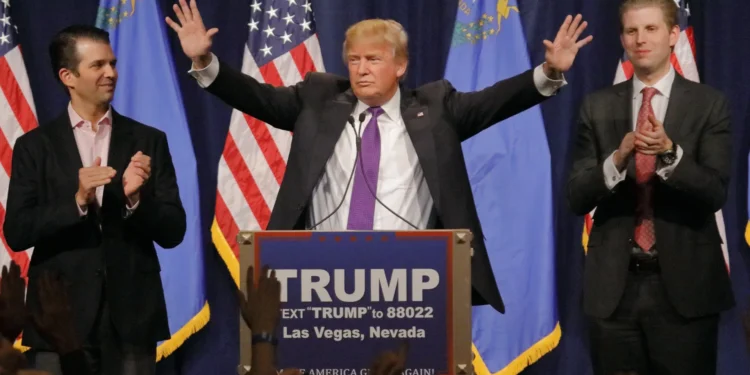On Wednesday, following the White House’s advancement of U.S. President Donald Trump’s much-anticipated tariffs, Trump stated from the Rose Garden, “For over 50 years, our country and its taxpayers have been exploited, but that ends now.”
Meanwhile, the leading cryptocurrency was recently trading at approximately $85,500, marking a 1.1% decrease over the past hour, as reported by crypto data provider CoinGecko. During Trump’s speech, Bitcoin briefly surged to a high of $87,800.
Trump announced that the U.S. would enforce a 25% tariff on “all foreign-made automobiles” beginning at midnight. He also stated that the country was supporting “our great farmers and ranchers” but did not specify any industry-specific tariffs.
Trump stated that the U.S. would implement “reciprocal tariffs” on nations that impose levies on American goods, with the total amount set at “approximately half” of what those countries currently charge the U.S. He explained that this total would account for the “combined rate of all their tariffs, non-monetary barriers, and other forms of cheating.”
Additionally, Trump announced that foreign countries would be required to pay a 10% “minimum baseline tariff,” which he described as a cost for accessing U.S. markets.
For weeks, the president has referred to his self-imposed tariff deadline as “Liberation Day,” vowing to implement significant tariffs on a range of goods and the nation’s largest trading partner.
Cryptocurrency prices have been highly volatile leading up to April 2, fluctuating as investors weighed the potential impact of tariffs on economic growth and inflation. Meanwhile, the administration’s stance on tariffs has shifted almost daily.
On Tuesday, White House Press Secretary Karoline Leavitt stated that the president’s team was still “perfecting” the tariff rollout but emphasized that Trump had already made “a decision and a determination.”
Trump had previously suggested implementing “reciprocal tariffs” on countries that impose levies on American goods. However, it remained unclear whether these tariffs would apply universally or if certain industries or nations might receive exemptions.
Tariffs could influence the Federal Reserve’s decision-making on interest rate cuts this year. If they result in prolonged price pressures, analysts suggest that risk assets like cryptocurrencies may remain under pressure as the U.S. central bank keeps borrowing costs high to counter inflation.
Amid Trump’s trade disputes, Bitcoin’s price dropped to as low as $77,000 last month. However, according to Thomas Perfumo, a global economist at crypto exchange Kraken, markets have already absorbed much of the uncertainty surrounding Trump’s trade policies.
“While headlines about ‘Liberation Day’ and related tariff measures continue to cause unease, much of the anticipated impact seems to have already been factored into the crypto market,” he told Decrypt.









